Top 5 AI Trip Planners
I love a lot of things about traveling — exploring new places, meeting people, trying exotic foods — all the great stuff. But I hate planning trips. Particularly when I’m trying to sort everything out not just for me but for multiple people (family, friends, colleagues).
Before I started using AI travel assistants, I was the kind of person with 14 Chrome tabs open at once, each with a different flight alert or hotel deal that I’d probably forget to revisit. I spent more time planning my vacations than actually enjoying them.
The first “tech-based” travel advisors I used weren’t exactly intuitive. They could suggest locations to visit or tell me prices for flights, but that was about it. Now, with the help of AI, trip planning tools have become a world apart. It’s like having a really well-organized travel buddy to take some of the weight off my shoulders so I can focus on other things — like packing.
So which tools really make a difference? This is my guide to the best AI tools for savvy adventurers.
What is an AI trip planner?
An AI trip planner is a digital assistant that builds your trip for you based on your unique preferences, budget, and travel goals. It’s kind of like speaking to a travel agent, except you don’t have to visit a store in person or sit on an uncomfortable chair while they click buttons on a computer.
Unlike traditional booking platforms, a smart travel planner doesn’t just show you lists, it learns as you go. You can say, “I want to spend five days in Spain, eat everything in sight, and stay for under $200 a night,” and it will try to make that happen.
Some tools have more features than others. There are AI apps I’ve tried that really just help me find better prices, while others come with a personalized travel itinerary generator. But most of the tools specialize in one thing: trip planning automation. You can stop flipping between sites, wondering if you’ve figured out everything from baggage allowances to late checkouts. Just get an AI virtual agent to handle everything for you.
How is AI changing the way we plan trips?
If you haven’t used AI for vacation planning before, you should. Yes, some tools are better than others, but most of them make it much easier to figure everything out than simply going it alone.
The biggest perks for me are speed, efficiency, and real-time adjustments. With a solid AI travel assistant, you can figure out where to stay, what to do, and how to get there in one go.
AI tools can suggest restaurants near your hotel, alert you to cheaper flights, and even rework your itinerary if rain pops up on day three. One time, while playing with Wonderplan, I changed my travel destination three times in the same session, and it easily kept up, adjusting my travel itinerary on the fly.
The pain points these tools erase? There are so many: decision fatigue, over-researching, timing conflicts, unread Google Docs shared between travel buddies, and more. AI lets you skip the admin and get straight to the fun stuff, which is what travel should be all about.
But not all tools are created equal. Some give you pretty calendars and useful maps. Others feel like talking to a confused Siri with a travel brochure. If you really want to tap into the benefits of AI for travel, be sure to choose your partner wisely.
The 5 best AI trip planners
You might not know this, but there are lots of AI tools out there that can help with trip suggestions, itinerary planning, and so on. ChatGPT can answer questions about destinations, and I’ve used Google’s AI overviews to check out flight prices too.
But there are only a handful of really good planning tools specifically designed for travel. And that’s what I’m focusing on here: the real apps actually built for explorers.
Jotform Travel Plan AI Agent
Best for: Travelers who want a low-hassle, conversation-driven planning experience
Developer: Jotform
G2 Rating: 4.5/5 stars
Pros: Easy to use, clean user interface (UI), feels human
Cons: Intended mainly for travel companies
Remember when Jotform was just a tool you used for designing forms, polls, and quizzes? Now it offers a full suite of customizable, intelligent agents that can help with everything from performance reviews to figuring out where you should go on your next vacation.
Jotform AI agents stand out because they’re just so simple to use — and versatile. They also feel really “human.” When I used the Travel planning AI agent, I expected a form-filling experience. What I got instead was a friendly, conversational flow that felt like chatting with a smart concierge.
The AI agent asked about my destination, budget, travel dates, preferred pace, and whether I wanted beaches or museums. Unlike some tools that assume everyone’s a luxury traveler, this one helped me keep it realistic. It can even build an entire travel itinerary output based on your answers, without toggling between browser tabs. It’s simple but effective.
Honestly, it’s designed a little more for companies trying to build their own AI agents for travel customers, but I still think it’s a fantastic tool.
Key features:
- Conversational input
- Activity suggestions, hotel and flight options
- Shareable itineraries
- Customizable templates for travel companies
- Easy-to-use interface
Plans/Pricing: Free plan available for beginners, followed by a Bronze plan ($39 per month) for up to 25 AI agents with 1,000 monthly conversations. The Silver plan ($49 per month) supports up to 50 AI agents with 2,500 monthly conversations.
Mindtrip
Best for: Travelers who love in-depth itinerary ideas
Developer: Mindtrip
G2 Rating: N/A
Pros: Visually stunning, dynamic, very interactive
Cons: Sometimes inaccurate, clunky filtering logic
Mindtrip might seem like an odd suggestion because it doesn’t have any reviews or ratings online yet, but I still think it’s one of the best AI trip planners I’ve used. It’s really straightforward. Just click on the “Get Started” button on the website, and it’ll take you to a chat interface where you can tell the bot what you’re looking for, like a trip to Turkey for two children and two adults.
Mindtrip’s AI itinerary builder then breaks down your adventure into a series of days, from the moment you arrive at the airport to the day you leave for home. You’ll get tips on where to eat, what to do, and what to see, with links to relevant sources too.
The map view is a major plus. You can actually see where your hotel is in relation to everything else. The tool lets you scroll through options and add them to your plan like a Pinterest board for your trip. It’s a dream for visual thinkers. You’ll also be able to print your itinerary or access it in calendar format — whatever works best for your planning structure.
Now for the bad news: it’s not great with nuance. I told Mindtrip I wanted a place “near public transport and around $400 a night.” It gave me hotels that were either one or the other but not both. Even after multiple rephrases.
Key features:
- Chat-based planner
- Interactive map with clickable listings
- Auto-updated itinerary
- Links to relevant resources
- Saved searches you can review later
Plans/Pricing: Free (still in beta)
Layla
Best for: Quick itinerary planning with minimal setup
Developer: Layla AI GmbH
G2 Rating: N/A
Pros: Natural language, good cultural context, flexible responses
Cons: No maps, limited features
Layla is a unique AI travel assistant that makes it feel like you’re planning your next trip with a friend who seems to know everything about every location you’d ever want to visit. Again, one of the reasons I think this is one of the best AI trip planners out there is that it’s so user-friendly.
Simply type in a question or goal, like “Help me plan a five-day hiking trip in Switzerland,” and the Layla chatbot will respond. I used it to plan a girls’ weekend in Mexico City, and the back-and-forth was honestly quite fun. She’ll even praise you for your good choices.
The bot can suggest neighborhoods to stay in, list a mix of museums and taco tours, and even give you local safety tips. But there are no maps and only limited visuals to help you out, which could be a problem for some travelers.
Key features:
- Chat-based travel planner
- Fast, friendly recommendations
- Great for idea generation
- Flight and hotel finder
- Itinerary creator
- Booking support
Plans/Pricing: Free (currently in open beta)
Wonderplan
Best for: Budget-conscious travelers who want fast, structured plans
Developer: Vecro Tech LTD
G2 Rating: N/A
Pros: Clear output, budget filtering, fast results
Cons: Lacks surprise, not great at unusual or niche requests
Wonderplan is my go-to AI itinerary builder for when I just want a basic plan and I want it now. It’s fast, smooth, and surprisingly good at generating reasonable ideas with minimal input. I tested it with a seven-day trip to New York for myself and one other person.
It suggested places to stay, unique things to do (biking, hiking, or visiting museums), and even gave me an idea of the average cost I would pay for a motel, hotel, Airbnb, and transportation. Plus, it gave me some great links to places to visit too. The app can even tell you about how much time you’ll need to put aside to make the most of each attraction, as well as how much you’re likely to spend.
What I like most: Wonderplan asks for your trip length, travel style, and budget up front, then goes right to work. The results are laid out by day, and you can export or edit from there. It’s more “travel homework” than full conversation, but it is efficient.
That said, if you want something more custom, like fewer touristy spots, more local experiences, or anything that deviates from the usual “Top 10” lists, Wonderplan starts to feel formulaic. There’s also no bot to chat with either.
Key features:
- Daily itineraries based on budget and preferences
- Editable timeline
- Good international coverage
- Maps and links to location
- Budget generator included
Plans/Pricing: Free, with premium features rumored to be in development
Google Gemini
Best for: Travelers already using Google services who want AI-backed suggestions on a familiar interface
Developer: Google
G2 Rating: 4.4/5 stars
Pros: Seamless if you’re already using Google, fast suggestions, good contextual awareness
Cons: No unified planner view, limited customization, not a full trip-planning automation tool
Ok, so Google Gemini isn’t technically a standalone AI travel assistant. But if you’re looking for AI that can pull together trip suggestions and insights into pricing all at once, it is a fantastic tool. It’s also layered into the tools a lot of people already use for trip planning, like Google Search and Google Maps.
I asked Gemini to help me plan a trip to Toronto, and it began by suggesting peak times to visit, the right length for the trip, and popular attractions. Then it asked me for help refining those suggestions by telling it about my interests, budget, and travel dates.
One-click options let me save places to Google Maps or copy the plan to Google Docs, which helped keep things organized. The lack of a dedicated AI itinerary builder, though, is noticeable. With Gemini, there is no single interface where I could see my whole trip laid out or adjust it dynamically. I had to manually piece things together using Maps, Gmail (for hotel confirmations), and Docs.
Key features:
- Real-time suggestions through Search and Maps
- Price tracking for hotels and flights
- Easy to save locations and export to Docs
- Convenient, conversational interface
- Visuals and maps available
Plans/Pricing: Free (baked into the Google ecosystem)
Choosing the right AI trip planner for you
The truth is, there’s no single best AI trip planner for everyone. What works for me, a slightly obsessive, budget-conscious, semi-spontaneous traveler, might be total chaos for you.
So here are some suggestions:
- If you’re planning with a group or family, look for AI itinerary builder tools that let you share and adjust the plan collaboratively. Jotform’s AI travel assistant is a great option. Its clean interface makes it easy for multiple people to follow along without yelling across the group chat.
- If budget is your biggest concern, AI models like Google Gemini and Wonderplan should be your go-tos. Built around cost efficiency, they offer decent output with almost no learning curve. And for more visual thinkers or detail lovers, Mindtrip really shines, especially with its map interface.
- Want ideas and cultural guidance more than logistics? Layla is chill, conversational, and weirdly wise. But you’ll need to build the structure of your trip yourself afterward.
- Pick two tools and give them the exact same prompt. Something like, “5-day trip to Tokyo with a mix of food, history, and shopping.” Compare the AI trip suggestions. Which one more closely matches your vibe? Which one includes ideas you hadn’t thought of? That’s your planner.
- Most of these tools are free (at least right now), so go ahead and test-drive your way to the best AI travel apps combo for your next trip without spending anything.
Plan your next trip the smart way
I’ve spent weeks obsessing over AI for vacation planning, testing each tool the way any self-respecting travel nerd would: same prompt, different planners, comparing outputs like it was a job interview. Some surprised me. Some frustrated me. And a couple made me feel like I’d just saved four hours of my life.
There may not be a one-size-fits-all AI travel assistant, but there is one that’ll fit your needs, your budget, and your comfort level. If you want a clean, conversation-led experience that keeps things human and helpful, give Jotform’s Travel Plan AI Agent a spin. I’d also recommend this option to any travel companies out there that want to create their own AI-powered travel assistant for customers.
Whatever you decide, trust me — handing the travel headaches over to AI will make your next adventure a lot smoother. And so much less stressful. Happy travel planning!
Pro Tip
This article is for travelers who want to save time and reduce stress by using AI tools to plan personalized trips. It’s ideal for those managing multiple bookings and looking for easy-to-use, conversational travel planners that create smart itineraries.
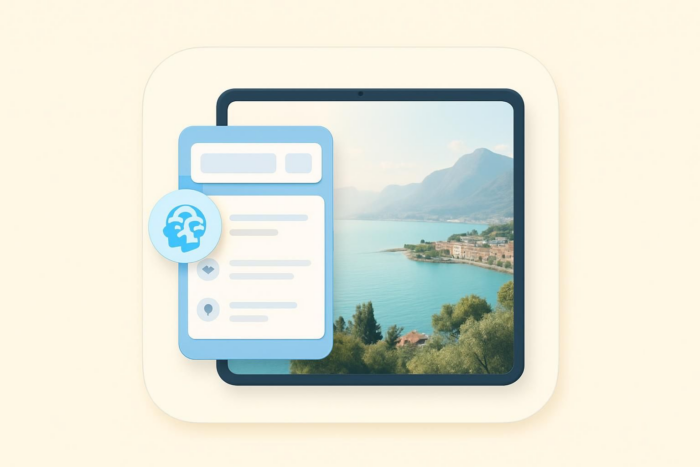

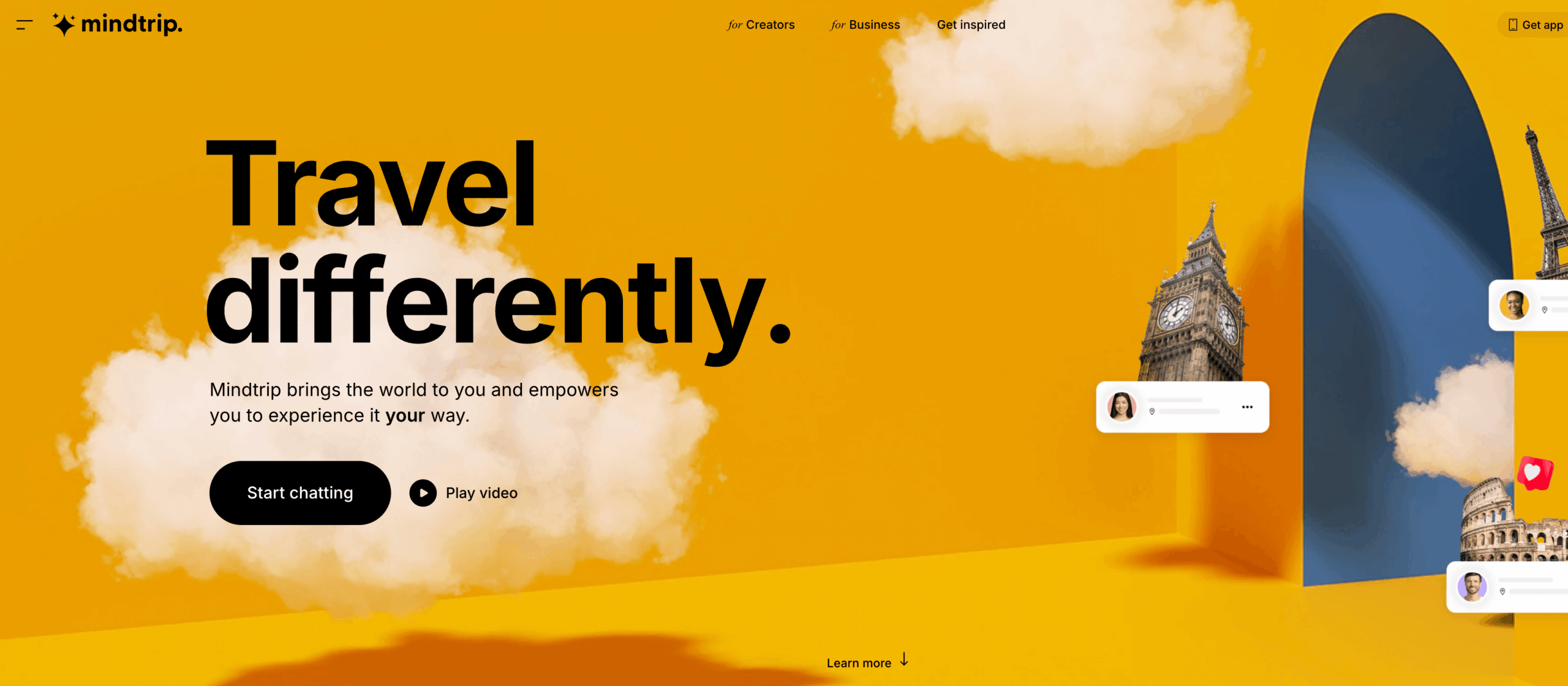
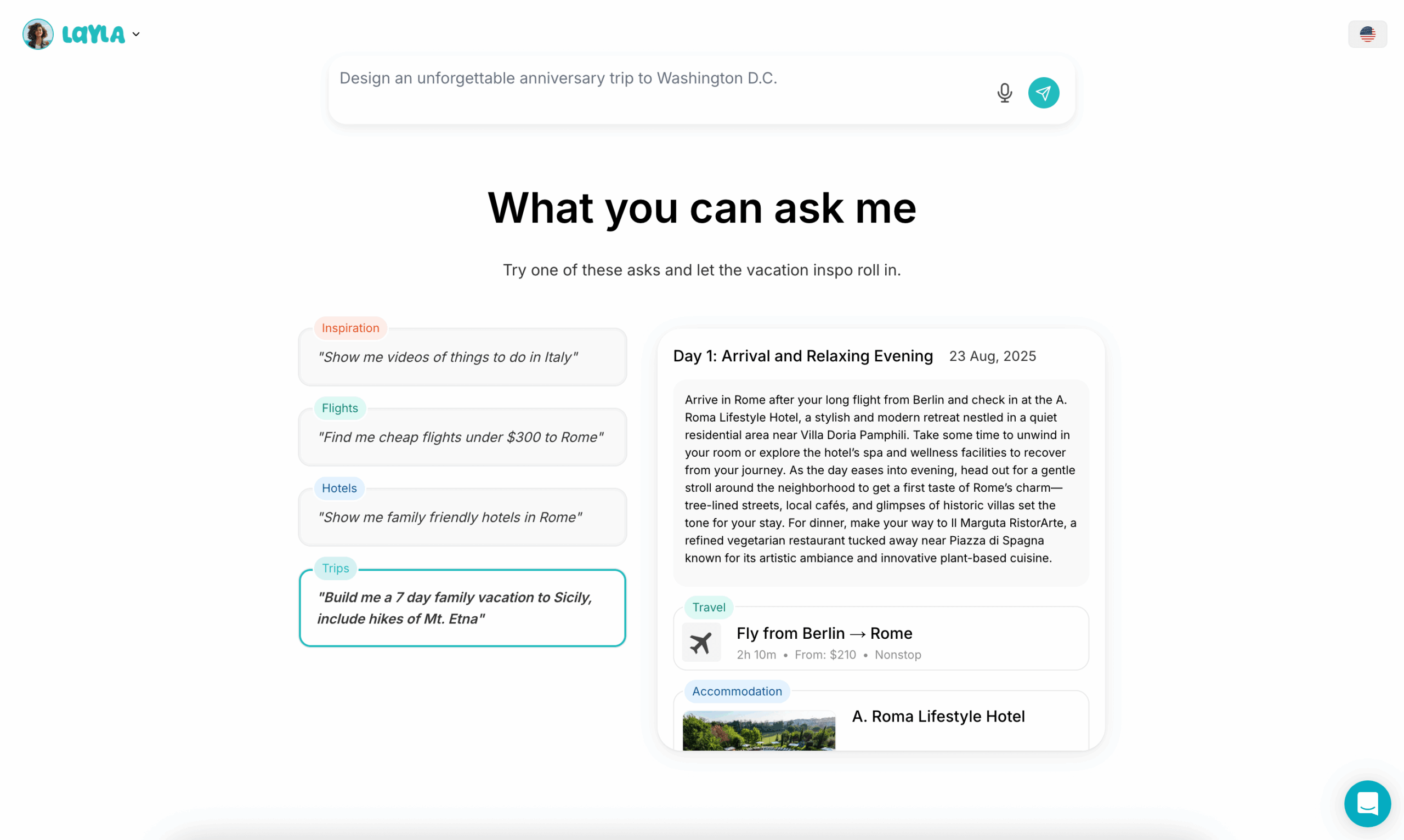
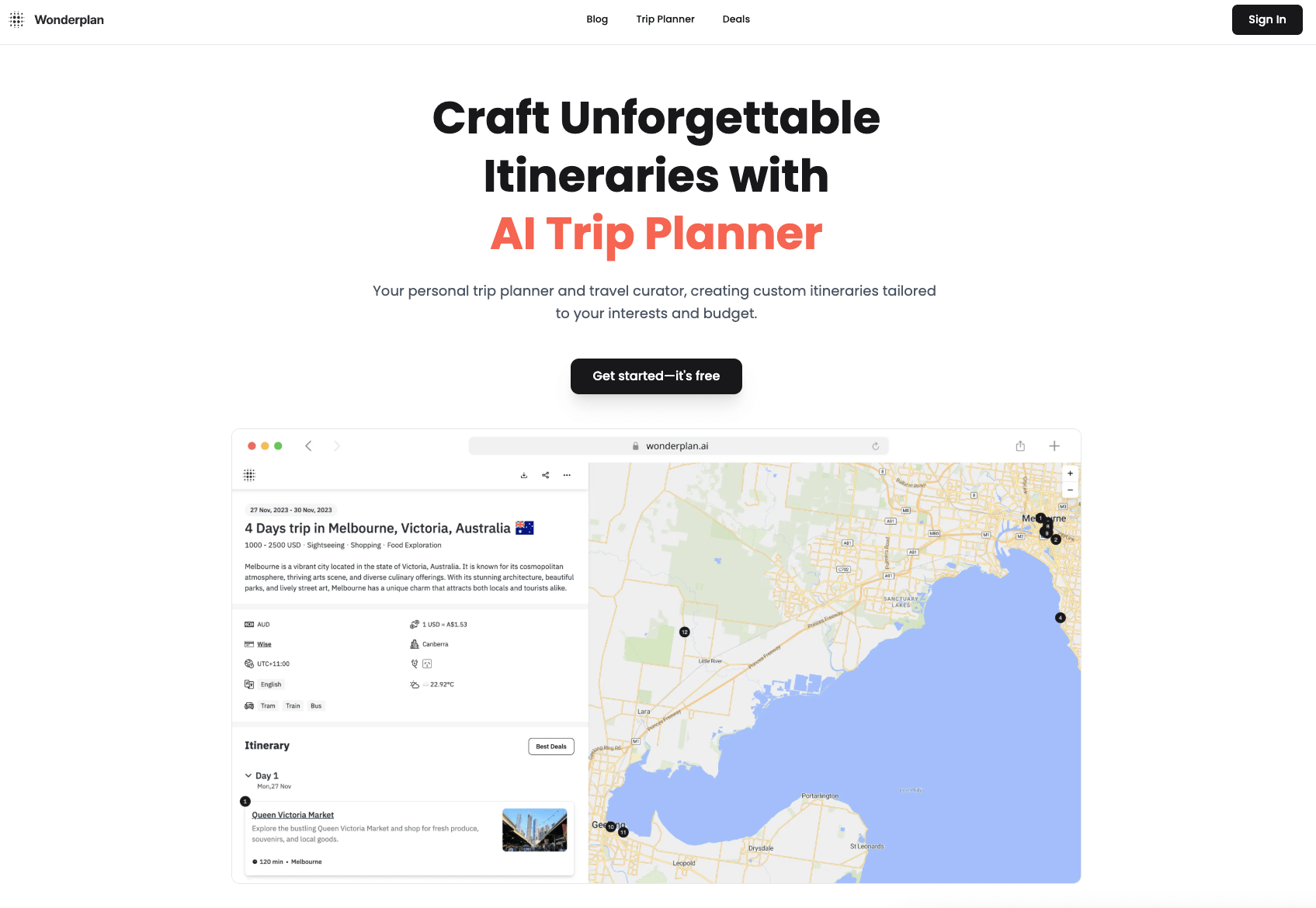
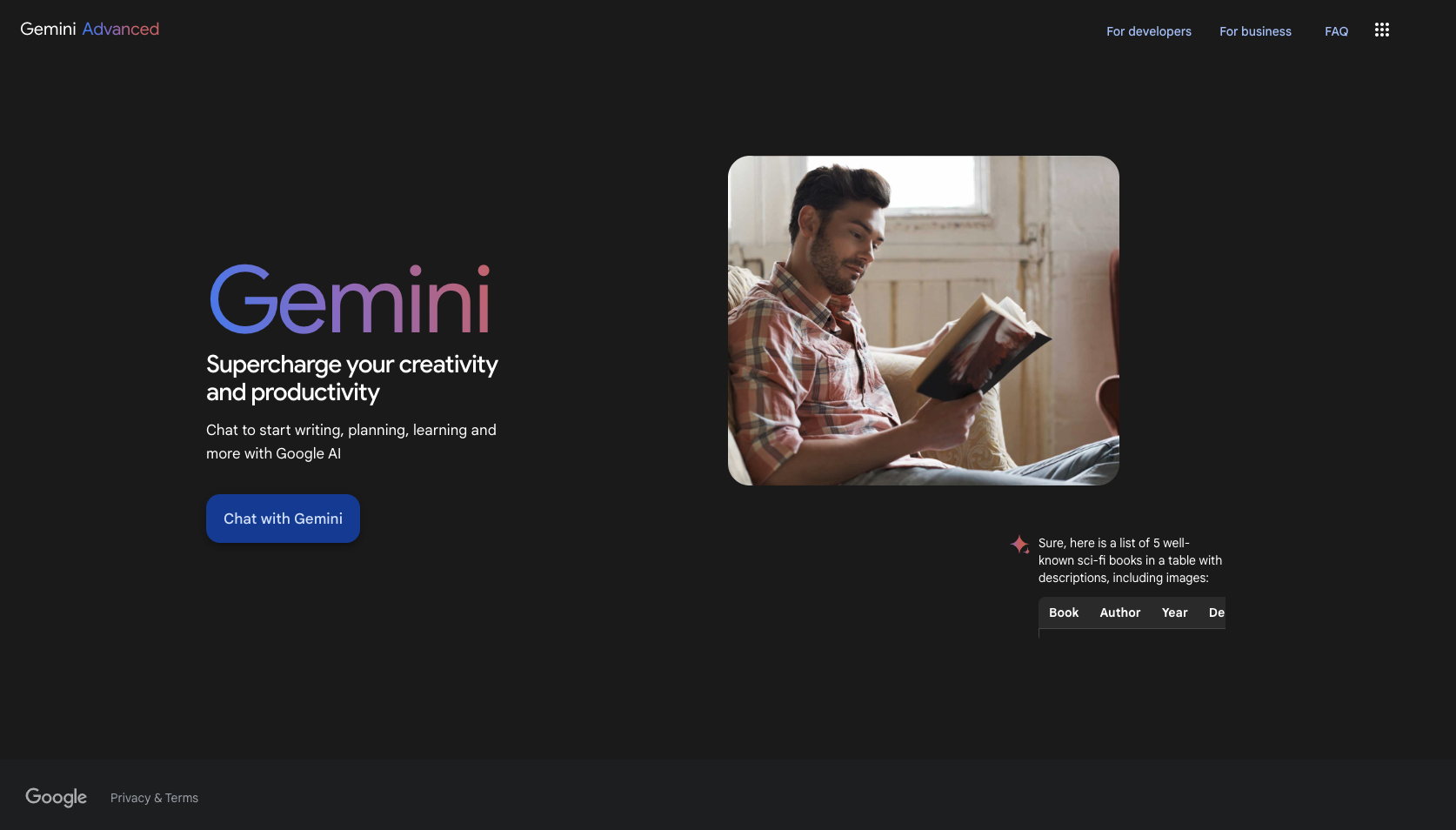






































































































Send Comment: